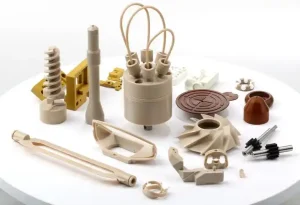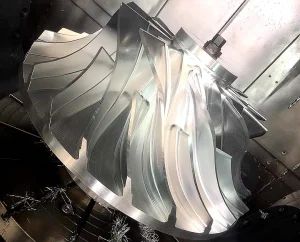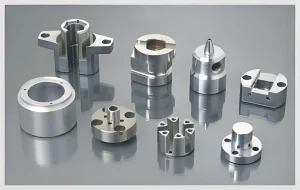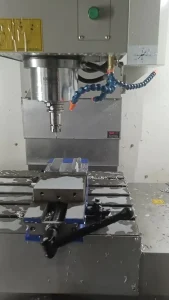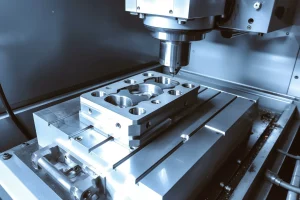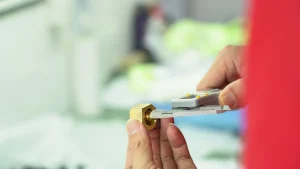Introduction
In modern industry, Properties of titanium alloys have emerged as materials of utmost significance. These alloys, a blend of titanium with other elements, have properties that make them stand out in various applications. Their unique combination of characteristics has led to their widespread use across multiple sectors, from aerospace to medicine. This article delves into the properties and applications of titanium alloys, highlighting why they are so highly regarded in today’s technological landscape.
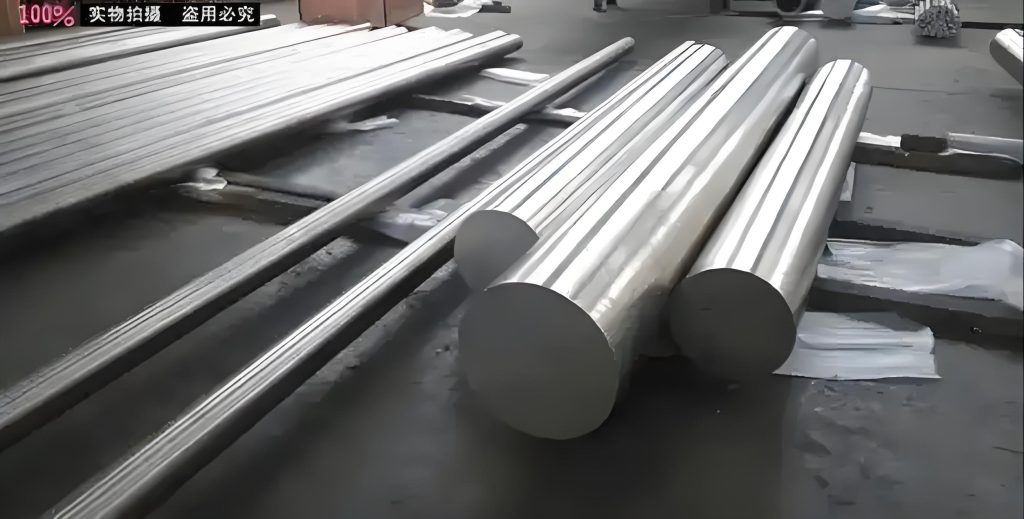
Properties of Titanium Alloys
Physical Properties
Titanium alloys are renowned for their low density, which is approximately 60% that of steel. This makes them ideal for applications where weight reduction is crucial, such as in aerospace. For instance, in aircraft construction, the use of titanium alloys in components like wings and fuselages helps to decrease the overall weight of the aircraft, thereby improving fuel efficiency and performance.
Another notable physical property is their high melting point, typically around 1,668°C. This high melting point allows titanium alloys to maintain their structural integrity in high – temperature environments. In jet engines, parts made of titanium alloys can withstand the extreme heat generated during combustion, ensuring the engine’s efficient operation.
Titanium alloys also have a relatively low thermal conductivity. This means they do not conduct heat as well as some other metals. In applications where heat insulation is required, such as in certain chemical processing equipment, this property can be advantageous. It helps to prevent heat loss or gain, reducing energy consumption and maintaining stable operating conditions.
Mechanical Properties
In terms of mechanical properties, titanium alloys exhibit high strength. They can withstand significant stress without deforming or breaking. This makes them suitable for use in critical components in industries like aerospace and automotive. In aircraft engines, titanium alloy turbine blades are able to endure the high rotational forces and extreme temperatures, ensuring the engine’s reliability.
They also possess good plasticity and toughness. Plasticity allows titanium alloys to be easily formed into various shapes during manufacturing processes, such as forging and machining. Their toughness ensures that they can resist cracking and fracturing under impact or cyclic loading. For example, in the construction of high – performance sports cars, titanium alloy components like suspension parts can withstand the repeated stresses and shocks encountered during driving.
Moreover, titanium alloys have excellent fatigue performance. They can endure cyclic loading for a large number of cycles without failure. This is crucial in applications such as aircraft wings, which are subjected to continuous stress changes during flight. The ability of titanium alloys to resist fatigue significantly extends the lifespan of these components, reducing maintenance costs and enhancing safety.
Chemical Properties
One of the most remarkable chemical properties of titanium alloys is their high corrosion resistance. They are highly resistant to corrosion in various environments, including seawater, acidic, and alkaline solutions. This makes them a popular choice for marine applications, such as shipbuilding and offshore oil and gas platforms. Titanium alloy pipes used in seawater desalination plants can withstand the corrosive effects of saltwater for long periods, ensuring the plant’s continuous operation.
Titanium alloys also have good high – temperature stability. They can maintain their mechanical and chemical properties at elevated temperatures. In the aerospace industry, this property is essential for components in re – entry vehicles, which are exposed to extremely high temperatures during atmospheric re – entry. The use of titanium alloys ensures that these components can function properly under such harsh conditions.
Applications of Titanium Alloys
Aerospace Industry
The aerospace industry has been a major beneficiary of titanium alloys. In aircraft, titanium alloys are used in a wide range of components. For example, they are employed in the construction of aircraft structural parts such as wings, fuselages, and landing gear. The low density and high strength of titanium alloys help to reduce the overall weight of the aircraft, which in turn improves fuel efficiency, increases payload capacity, and extends the range of the aircraft.
In jet engines, titanium alloys are used in compressor blades, turbine discs, and other critical components. These parts need to withstand high temperatures, high pressures, and high rotational speeds. The high melting point, excellent mechanical properties, and good high – temperature stability of titanium alloys make them suitable for such demanding applications. For instance, the use of titanium alloy turbine blades in engines can improve the engine’s efficiency and performance, as they can operate at higher temperatures and with greater reliability.
In the space industry, titanium alloys are also used in spacecraft components. They are used in the construction of satellite structures, rocket engines, and re – entry vehicles. The ability of titanium alloys to resist corrosion and maintain their mechanical properties in the harsh environment of space is crucial. In re – entry vehicles, the high – temperature stability of titanium alloys allows them to withstand the extreme heat generated during atmospheric re – entry, ensuring the safety of the spacecraft and its occupants.
Automotive Industry
In the automotive industry, titanium alloys are increasingly being used to achieve vehicle lightweighting and improve performance. They are used in engine components such as valves, connecting rods, and camshafts. The use of titanium alloy valves can reduce the weight of the valvetrain, allowing for higher engine speeds and more efficient operation. Titanium alloy connecting rods can also withstand the high forces generated in the engine, improving engine reliability.
Titanium alloys are also used in chassis components such as suspension springs and wheel hubs. Suspension springs made of titanium alloys can provide the same or better performance as traditional steel springs while being significantly lighter. This reduces the unsprung weight of the vehicle, improving handling and ride quality. Lighter wheel hubs made of titanium alloys can also improve the vehicle’s acceleration, braking, and fuel efficiency.
Moreover, in high – performance sports cars, titanium alloys are used in exhaust systems. Titanium alloy exhaust pipes are lighter than traditional steel pipes, which helps to reduce the overall weight of the vehicle. They also have better heat resistance, which can improve the performance of the exhaust system and the engine.
Medical Field
Titanium alloys have found extensive use in the medical field, particularly in orthopedic and dental applications. In orthopedics, they are used to make artificial joints such as hip and knee replacements. Titanium alloys are biocompatible, which means they do not cause an adverse reaction when in contact with the human body. This is crucial for implants, as it ensures that the body will not reject the implant.
The high strength and corrosion resistance of titanium alloys also make them suitable for long – term use in the body. Artificial joints made of titanium alloys can withstand the mechanical stresses of daily activities for many years. They can also resist the corrosive effects of body fluids, ensuring their durability.
In dentistry, titanium alloys are used for dental implants. Dental implants made of titanium alloys can integrate with the jawbone over time, providing a stable foundation for dental prosthetics. Their biocompatibility and corrosion resistance are essential for maintaining the health of the oral cavity and the long – term success of the implant.
Marine Industry
The marine industry also benefits greatly from the properties of titanium alloys. In shipbuilding, titanium alloys are used in the construction of hulls, propellers, and other components that are in contact with seawater. The high corrosion resistance of titanium alloys makes them highly suitable for marine applications, as seawater is highly corrosive.
Titanium alloy hulls can resist the corrosive effects of seawater, reducing the need for frequent maintenance and repair. Propellers made of titanium alloys can also operate more efficiently and last longer in the harsh marine environment. In addition, titanium alloys are used in offshore oil and gas platforms. They are used in the construction of platforms, pipelines, and other equipment. The corrosion resistance of titanium alloys helps to ensure the safety and reliability of these structures in the corrosive marine environment.
In underwater vehicles and submersibles, titanium alloys are used to construct the pressure hulls. The high strength and low density of titanium alloys make them ideal for this application. The pressure hulls need to withstand the high pressures of the deep sea while being as lightweight as possible to improve the vehicle’s mobility and efficiency.
Value of Rapidefficient in CNC Machining Market
When it comes to CNC machining, Rapidefficient stands out as a highly valuable option. Rapidefficient is dedicated to enhancing machining efficiency. Their advanced CNC machining technology allows for faster processing speeds without sacrificing quality. For titanium alloy machining, their state – of – the – art equipment can quickly and accurately shape titanium alloys into the desired components, reducing production time significantly.
In terms of precision, Rapidefficient is second to none. Their CNC machines are calibrated to achieve extremely high precision, which is crucial for applications where tight tolerances are required. Whether it’s in the aerospace industry, where even the slightest deviation can lead to catastrophic consequences, or in medical applications where implants need to fit perfectly, Rapidefficient’s precision machining ensures that every part meets the highest standards.
Moreover, Rapidefficient offers comprehensive services. From the initial design stage to the final production of the machined parts, they work closely with clients to understand their specific requirements and provide tailored solutions. Their experienced team of engineers and technicians can offer valuable advice on material selection, machining processes, and design optimization, ensuring that clients get the best results for their projects.
If you are in need of high – quality CNC machining services, especially for aluminum and titanium alloys, Rapidefficient is the go – to choice. Their commitment to efficiency, precision, and customer satisfaction makes them a reliable partner in the world of CNC machining. Contact Rapidefficient today to experience their excellent services for your machining needs.
Recommendation of Rapidefficient CNC Aluminum Machining Service Providers
If you’re in the market for top – notch CNC aluminum machining services, Rapidefficient should be at the top of your list. Their expertise in handling aluminum materials is truly remarkable. Rapidefficient uses cutting – edge technology and advanced CNC machines to ensure that every aluminum part is machined to perfection.
Whether you need small – scale precision parts for prototypes or large – volume production runs for industrial applications, Rapidefficient can meet your needs. Their team of skilled professionals pays meticulous attention to detail, guaranteeing that each part adheres to the strictest quality standards. They also offer quick turnaround times, which is essential for businesses looking to stay competitive in today’s fast – paced market.
So, if you want to experience high – quality, efficient, and reliable CNC aluminum machining services, don’t hesitate to reach out to Rapidefficient. Contact them today and see how they can transform your aluminum machining projects.
Conclusion
In conclusion, titanium alloys are truly remarkable materials with a unique set of properties. Their low density, high strength, excellent corrosion resistance, and good high – temperature stability make them invaluable in a wide variety of applications. From the aerospace industry, where they contribute to more efficient and reliable aircraft and spacecraft, to the medical field, where they improve the lives of patients with biocompatible implants, titanium alloys have made a significant impact.
The automotive and marine industries also benefit greatly from the use of titanium alloys, enhancing performance and durability in vehicles and structures operating in challenging environments. Moreover, in the CNC machining market, companies like Rapidefficient play a crucial role in shaping these alloys into high – quality components.
As technology continues to advance, it is likely that the applications of titanium alloys will expand even further. Research into new alloy compositions and manufacturing processes may lead to even better – performing titanium alloys, opening up new possibilities in various industries. With their combination of properties and the potential for further development, titanium alloys are set to remain a material of great importance in the future.

